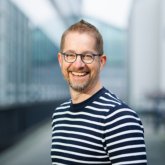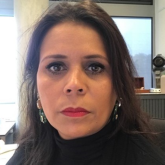The Internet has had a revolutionary impact on modern society. What started as a technology to interconnect only a handful of institutions has – in a span of three decades – risen to become our core communications fabric. We use the Internet, among others, to find and disseminate important information, to connect with friends and relatives, and to engage in e-commerce. Due to its central role, the Internet is attractive for cybercriminals, who use computer systems and networks to carry out criminal activities. Bad actors use techniques such as phishing to steal personal or otherwise sensitive information. Malware is used to steal data or inflict damage on computer or software systems. Fraudulent webshops have been on the rise. And misinformation and fake news is spread on-line, promoting conspiracy theories and fringe communities.
Individuals and groups that are vulnerable to crime in the physical world are especially vulnerable to cybercrime. A so-called “security divide” exists between those with the knowledge and resources to protect themselves from cyber threats and those without. This division exists within countries but also between countries, and disparities are expected to deepen in the future (Internet Society, 2022).
The goal of this PhD project is to identify and characterize abuse on the Web and to establish actionable insights to facilitate takedown efforts. Examples of abuse include malvertisement, illicit content, or disinformation. The type of abuse is not set in stone, giving the candidate some freedom to establish a course of action together with their advisors. What is a given is the measurement-based approach and use of machine-learning (e.g., feature engineering, clustering, NLP, LLMs).
Several invaluable data sets that the group collects are anticipated to take a central role in the project. For example, we have an extensive view on domain names under country top level domains, which can facilitate country-level studies. Moreover, we measure where content is located, which could help identify networks that host illicit content, knowingly or unknowingly. The candidate is also expected to recognize and expand on data collection opportunities in furtherance of their research.
Information and application
Are you interested in being part of our team? Please submit your application before May 31, 2025, via the ‘Apply Now’ button below. Make sure to include:
- A motivation letter, detailing your reasons for applying for this PhD position, and explaining how you match the profile;
- A Curriculum Vitae;
- Academic transcripts of your B.Sc. and M.Sc. Education.
For more information regarding this position, you are welcome to contact Mattijs Jonker via the following email address: m.jonker@utwente.nl.
About the department
The PhD candidate will work at the Design and Analysis of Communication Systems (DACS) group at the University of Twente. The research will be conducted under the supervision of dr. ir. Mattijs Jonker and Prof. dr. ir. Roland van Rijswijk-Deij.
The mission of the Design and Analysis of Communication Systems (DACS) group at the University of Twente is to contribute to the development of a trusted and resilient Internet for all. We do this, among others, by measuring the Internet and harnessing the power of data analytics to study security, stability and resiliency issues.
About the organisation
The faculty of Electrical Engineering, Mathematics and Computer Science (EEMCS) uses mathematics, electronics and computer technology to contribute to the development of Information and Communication Technology (ICT). With ICT present in almost every device and product we use nowadays, we embrace our role as contributors to a broad range of societal activities and as pioneers of tomorrow's digital society. As part of a people-first tech university that aims to shape society, individuals and connections, our faculty works together intensively with industrial partners and researchers in the Netherlands and abroad, and conducts extensive research for external commissioning parties and funders. Our research has a high profile both in the Netherlands and internationally. It has been accommodated in three multidisciplinary UT research institutes: Mesa+ Institute, TechMed Centre and Digital Society Institute.



